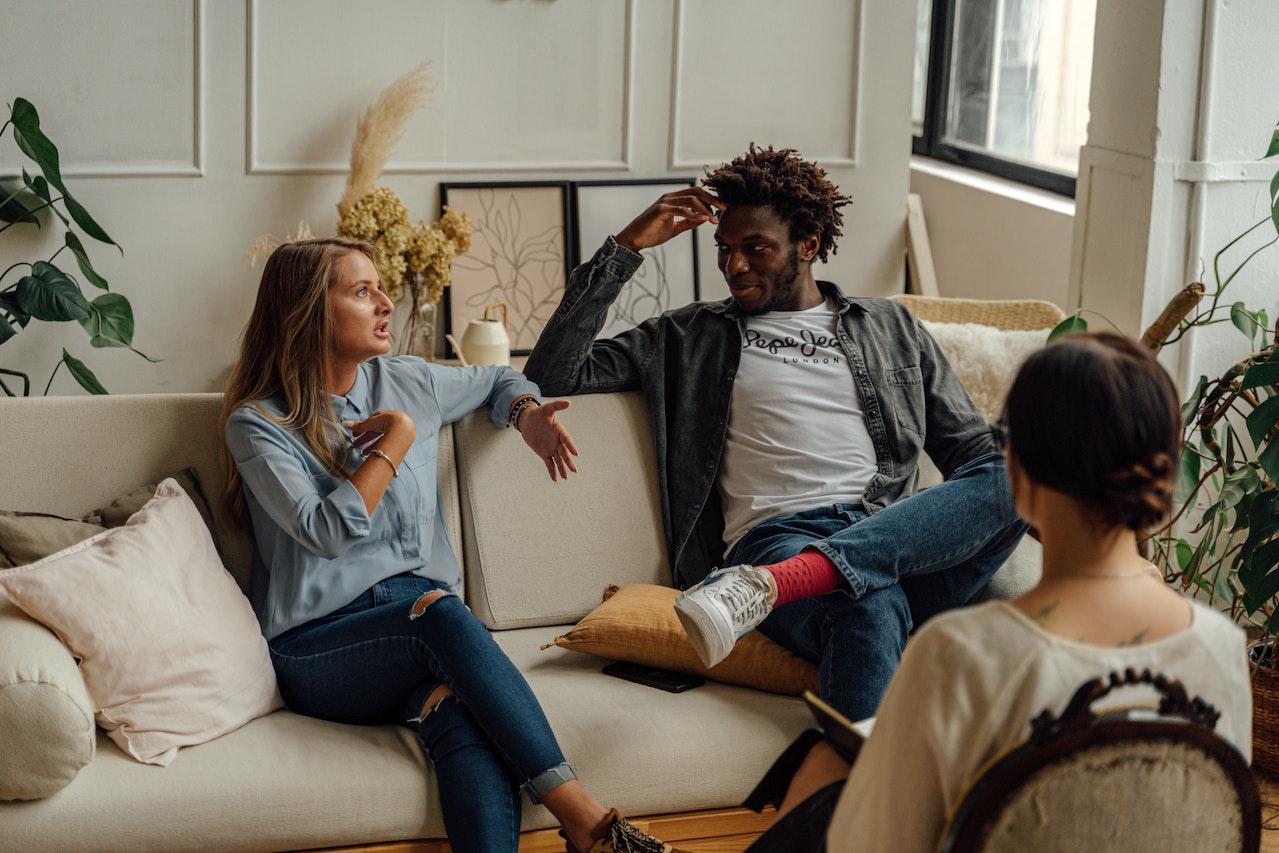What is Community Counseling at Women Are Dreamers Too?

Community counseling for victims of domestic violence and their children is a specialized form of counseling that focuses on providing support, healing, and empowerment to individuals and families who have experienced domestic violence. It addresses the unique emotional, psychological, and social challenges that arise from such traumatic experiences. The goal of community counseling in this context is to help survivors regain control of their lives, heal from the trauma, and build a foundation for a violence-free future.
Here are key aspects of community counseling for victims of domestic violence and their children:
1. **Trauma-Informed Approach**: Counselors adopt a trauma-informed approach, recognizing the impact of trauma on survivors' mental and emotional well-being. They create a safe and supportive environment that takes into account the sensitivity of the issues being discussed.
2. **Safety and Empowerment**: The counseling process prioritizes the safety and empowerment of survivors. Counselors work with clients to develop safety plans, increase self-confidence, and regain a sense of control over their lives.
3. **Healing from Trauma**: Community counseling helps survivors process and heal from the emotional wounds caused by domestic violence. Techniques like cognitive-behavioral therapy, mindfulness, and narrative therapy may be used to address trauma symptoms and promote emotional recovery.
4. **Understanding Patterns of Abuse**: Counselors help survivors recognize and understand the patterns of abuse in their relationships. This can empower survivors to make informed decisions about their futures.
5. **Rebuilding Self-Esteem**: Domestic violence often erodes self-esteem and self-worth. Community counseling aims to rebuild survivors' self-esteem and self-confidence, helping them regain a positive self-image.
6. **Parenting Support**: For survivors who are parents, counseling can provide guidance on parenting after experiencing domestic violence. It helps parents create a safe and nurturing environment for their children and promotes healthy parenting skills.
7. **Child-Centered Approaches**: When working with children who have witnessed domestic violence, counselors use child-centered and age-appropriate methods to help them understand their experiences, express their emotions, and develop coping skills.
8. **Support Groups**: Group counseling sessions provide survivors with an opportunity to connect with others who have had similar experiences. Support groups foster a sense of community, validation, and shared healing.
9. **Life Skills and Independence**: Community counseling may offer practical life skills training, such as financial literacy, job readiness, and communication skills, to empower survivors to achieve greater independence.
10. **Advocacy and Resources**: Counselors often link survivors with local resources such as shelters, legal aid, medical services, and community organizations that can provide additional support.
11. **Cultural Sensitivity**: Community counselors recognize the cultural diversity of their clients and ensure that counseling approaches are culturally sensitive and respectful.
12. **Long-Term Healing**: Community counseling aims to support survivors in their long-term healing journey, helping them rebuild their lives and create a future free from violence.
Overall, community counseling for victims of domestic violence and their children provides a vital space for healing, growth, and empowerment. It acknowledges the resilience of survivors while offering the necessary tools and support to overcome the impact of domestic violence and build a healthier and safer future.
Here's what happens during a community counseling session at WADT
It involves a trained counselor working with individuals, families, or groups to address their mental health, emotional, and psychological needs. The specific activities and approaches during our community counseling can vary based on the goals of the counseling sessions and the needs of the participants. Here's an overview of what typically happens during community counseling at WADT
1. **Initial Assessment**: The counseling process often begins with an initial assessment. The counselor meets with the individual or group to gather information about their concerns, history, and goals for counseling. This assessment helps the counselor understand the unique needs and challenges of the participants.
2. **Establishing Rapport**: Building a trusting and supportive relationship between the counselor and the participants is essential. The counselor creates a safe and non-judgmental space where individuals can openly discuss their feelings, experiences, and concerns.
3. **Goal Setting**: Based on the information gathered during the assessment, the counselor and participants collaboratively set goals for counseling. These goals may include improving coping skills, addressing specific issues, enhancing self-esteem, or achieving personal growth.
4. **Individualized Treatment Plan**: The counselor develops an individualized treatment plan that outlines the strategies and techniques to be used during counseling sessions. This plan takes into account the participant's strengths, challenges, and preferences.
5. **Therapeutic Techniques**: our community counseling employs a variety of therapeutic techniques, such as talk therapy, cognitive-behavioral therapy, mindfulness, expressive arts, narrative therapy, and more. The counselor selects techniques that are best suited to the participant's needs and goals.
6. **Skill-Building and Coping Strategies**: Participants learn practical skills and coping strategies to manage their emotions, thoughts, and behaviors. These skills help individuals navigate challenges, make informed decisions, and develop healthier ways of coping.
7. **Processing Emotions and Experiences**: Participants are encouraged to explore and process their emotions and experiences related to their concerns. This may involve discussing past events, identifying triggers, and understanding the impact of these experiences on their well-being.
8. **Behavioral Changes**: WADT community counseling often focuses on helping participants make positive behavioral changes. This could include improving communication skills, setting boundaries, managing stress, and developing healthier habits.
9. **Feedback and Reflection**: Throughout the counseling process, participants receive feedback and guidance from the counselor. They are encouraged to reflect on their thoughts, feelings, and progress, fostering self-awareness and insight.
10. **Support and Validation**: Participants receive emotional support and validation from the counselor. Feeling understood and heard can have a positive impact on the healing process.
11. **Homework and Assignments**: In some cases, counselors may assign homework or activities to be completed between sessions. These assignments help participants practice the skills they are learning and reinforce the therapeutic process.
12. **Tracking Progress**: The counselor and participants regularly review progress toward the established goals. This helps to ensure that the counseling process is effective and that adjustments can be made if necessary.
13. **Closure and Graduation**: As participants make progress and achieve their goals, the counseling process may come to a natural conclusion. The counselor and participants discuss their achievements, review the skills learned, and prepare for life beyond counseling.
Overall, community counseling at WADT provides a space for individuals, families, or groups to engage in a collaborative and supportive process aimed at improving their mental and emotional well-being, enhancing their coping skills, and achieving personal growth. The specific activities and techniques used during counseling sessions are tailored to the needs and goals of the participants.


